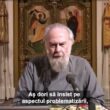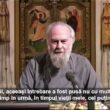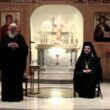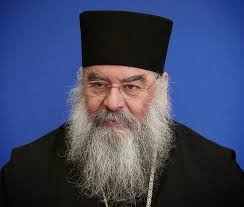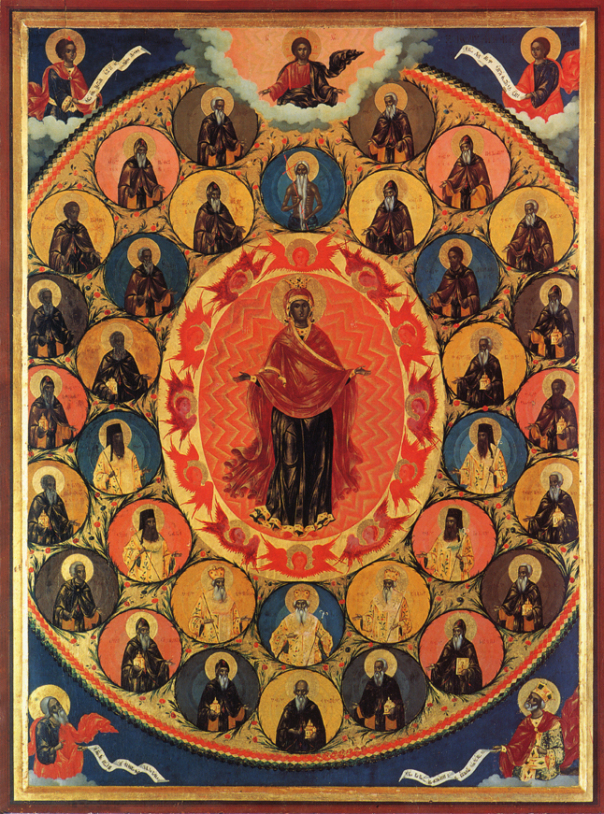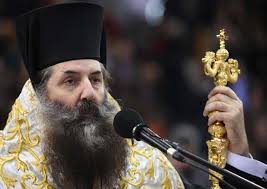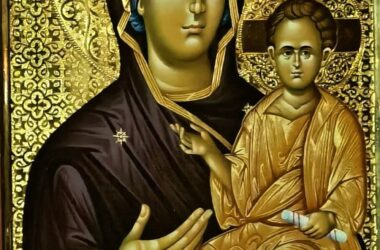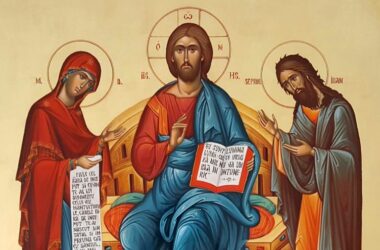Your Eminence and Holy Fathers,
I received the texts that were evaluated as decisions within different pre-council conferences that have taken place lately for the preparation of the Holy Great Council of the Orthodox Church and that officially supports the subjects of the texts that will be handed over to the upcoming Holy Great Council for approval. I thank you very much for sending these to me.
Since, in agreement with the regulations sent to us regarding the organization and operation of the Holy and Great Synod of the Orthodox Church, and in particular article 12, paragraphs 2 and 3, indicate that we are entitled first to express our views at our local Synod, I, having examined my conscience, humbly submit to the Holy and Sacred Synod of our holy Church my views and opinions regarding the following matters.
In his letter, His Eminence Athanasios speaks about the text of the 5th Preconciliar Pan-Orthodox Conference held in Chambesy in October entitled “Relations of the Orthodox Church to the rest of the Christian world,” stating the following:
“I am in total agreement with the first three articles of the text. However, at article 4 onwards, I have made the following observations: “The Orthodox Church has always prayed ‘for the union of all’ – I believe this to mean the return to and union with it of all those who broke up with it and distanced themselves from it, of heretics and schismatics, once they have given up to their heresy and schism and flee from those things with repentance and are integrated and joined – united – with the Orthodox Church in accordance with the teachings of the sacred canons. The Orthodox Church of Christ has never lost the “unity of faith and the communion of the Holy Spirit” and does not accept the theory of the restoration of the unity of those ‘who believe in Christ,’ because it believes that the unity of those who believe in Christ already exists in the unity of all of its baptized children, between themselves and with Christ, in its right faith, where no heretics or schismatics are present, for which reason the church prays for their return to Orthodoxy in repentance.
I believe that what is stated in article 5 regarding ‘the lost unity of Christians’ is incorrect, because the Church as God’s people, united among themselves and with the Head of the Church which is Christ, has never lost this unity and therefore is not in need of rediscovering or seeking it, because it always was, is, and will be just as the Church of Christ has never ceased and will never cease to exist.
It happened that groups, peoples or individuals left the body of the Church and the Church prays, and is required to try through mission that they all return in repentance to the Orthodox Church via the canonical route. In other words, there do not exist other Churches, only heresies and schisms, should we wish to be more precise in our definitions. The expression ‘towards the restoration of the Christian unity’ is incorrect because the unity of Christians – the members of the Church of Christ – has never been broken, as long as they remain united with the Church. The separation and flight from the Church have unfortunately happened numerous times due to heresies and schisms, but there has never been a loss of the internal unity of the Church.
I question why the text contains multiple references to ‘Churches’ and ‘Confessions’? What difference and which element allow us to call some ‘Churches’ and others ‘Confessions’? Which is a Church and which a heresy and which a schismatic group or confession? We confess one Church and that all the others are schisms and heresies. I maintain that giving the title ‘Church’ to heretical or schismatic communities is entirely incorrect from a theological, dogmatic and canonical perspective because the Church of Christ is one, as also stated in Article 1, and we cannot refer to a heretical or schismatic community or group outside the Orthodox Church as ‘Church’.
At no point does this text state that the only way that leads to union with the Church is solely the repentant return of heretics and schismatics to the One, Holy, Catholic and Apostolic Church of Christ, which according to Article 1 is our Orthodox Church. The reference to the ‘understanding of the tradition of the ancient Church’ gives the impression that there is an ontological difference between the ancient Church of the Seven Ecumenical Councils and the genuine continuation of the same until the present day, namely our Orthodox Church. We believe that there is absolutely no difference between the Church of the 21st century and the Church of the 1st century, because one of the attributes of the Church is the fact we also confess in the Symbol of Faith, namely that it is Apostolic.
The Bishop subsequently underlines that in Article 12, the impression is given that the Orthodox are looking to restore the right faith and unity, giving cause for an unacceptable view.
Article 12 states that the common purpose of the theological dialogues is ‘the final restoration of the unity in right faith and love’. This gives the impression that we Orthodox are seeking our restoration to correct faith and the unity of love, as if we had lost the right faith and are seeking to discover it through the theological dialogues with the heterodox. I maintain that this theory is theologically unacceptable for us all.
The reference of the text to the ‘World Council of Churches’ [WCC] gives me the opportunity to make a complaint against occasional syncretistic events which took place therein, but also against its title, since it regards the Orthodox Church as ‘one of the Churches’ or a branch of the one Church which seeks and strives for Her realisation at the World Council of Churches. For us, however, the Church of Christ is one and unique, as we confess in the Symbol of Faith.
The view that the preservation of the genuine Orthodox faith is guaranteed only through the synodal system as the only ‘competent and final authority on matters of faith’ [art 22] is exaggerated and ignores the truth that many synods throughout Church history taught and exposed incorrect and heretical doctrines, and it was the faithful people who rejected them and preserved the Orthodox faith and championed the Orthodox Confession. Neither a synod without the faithful people, the fullness of the Church, nor the people without the synod of Bishops, is able to regard themselves as the Body of Christ and Church of Christ and to correctly express the experience and doctrine of the Church.
I understood your Eminence and Holy Synodal brethrens that the use of hard or insulting language cannot be made in ecclesiastical encyclicals of this kind, nor do I think anyone desires the use of that form of expression. However, the truth must be expressed with precision and clarity, though naturally with pastoral discernment and genuine love towards all. We owe it also to our brothers who find themselves in heresy or schism to be entirely honest with them, and with love and pain to pray and do everything possible to bring about their return to the Church of Christ.”
I humbly maintain that texts of such importance and prestige as those of the Holy and Great Synod of the Orthodox Church must be very carefully formulated with theological and canonical precision in order that these ambiguities or untested theological terms do not also give rise to incorrect expressions which could lead to misconceptions and distortions of the correct attitude of the Orthodox Church. Moreover, for a Synod to be valid and canonical, it must not depart in any way from the spirit and teaching of the Holy Synods that preceded it, the teaching of the Holy Fathers and Holy Scriptures, and it must be free from any ambiguity in the precise expression of the correct faith.
Never did the holy Fathers nor ever in the holy canons or rulings of the sacred Ecumenical or Local Synods, are heretical or schismatic groups referred to as churches. If the heretics are indeed churches, where is the single One Church of Christ and the Apostles?
I humbly express my disagreement with the fact that the practice of all Sacred Synods until the present of allowing each bishop a vote is abolished. There had never been before a system of ‘one Church, one vote,’ which renders the members of the Holy and Great Synod, with the exception of the primates, mere decorative items by refusing them the right to vote.
I do have some other unclarities and objections regarding some other articles from the texts but I do not want to insist that much on this matter and I refer only to the issues that I consider to be the most important and on which I express my disagreement, point of view and faith.
I do not want to upset anyone with what I wrote, nor do I want to be seen to be teaching the judgment of my brothers and fathers in Christ. I simply feel the need to express what my conscience asks from me.
I request my opinions to be taken into consideration by the Holy Council.
Asking for your holy prayers for me, I remain your least brethren in Christ,
+ Athanasie de Limassol

